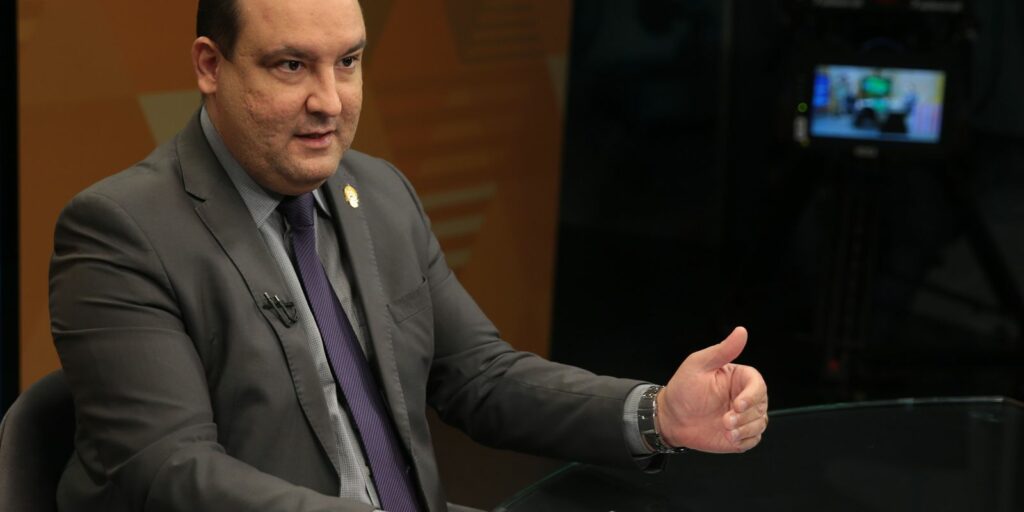A new committee, with a name yet to be defined and a pending administrative procedure, is the result of the pact that was made public a few days ago, created by Senator Yasna Provoste (DC), and which implies the birth of a mixed bench with the participation of independent senators Fabiola Campillai and Karim Bianchi.
For some, it would initially be a Falangist strategy to overcome the crisis scenario that their party is going through, fostering new alliances to maintain itself as a committee.
While, for others, the logic of “reorganization” in the commissions that the Christian Democrat senators would integrate as of March 2023, plus the internal crisis that the community is experiencing and the flight of militants, make the hypothesis emerge, both in the Chamber of Deputies and Deputies as in the Senate, of a possible plan – devised by Senator Provoste and her entourage – to “punish” former DC senators, Matías Walker and Ximena Rincón, who could lose their respective seats in key commissions in the Upper House, being forced to negotiate with the right, which could have negative repercussions on their party in formation (“Democrats”), which is presented as a project positioned in the political center.
In this regard, from the nascent mixed committee they assured that the triggering factor of this restructuring was the resignation from Christian Democracy, last October, of Senator Rincón and Senator Walker, who would have approached Fabiola Campillai and Karim Bianchi in the first instance. to offer a possible association, receiving a negative response. After that, Senators Campillai and Bianchi decided to agree to a Provoste proposal that could have included the possible transfer of quotas in commissions, to the detriment of the founders of “Democrats.”
As noted in the Upper House, this new pact could cause Senator Walker to lose his seat on the Labor Commission (in 2023), and the same with Senator Rincón on the Finance Commission (contemplated for 2024 and 2025). Precisely, the parliamentarian referred to this type of speculation, noting that she did not know that the agreement on the commissions and their members, agreed at the beginning of this year, was something that was now being questioned. From the phalanx, on the contrary, they assume that her resignation from the party forces them to reorganize the committee and seek new alliances.
In this sense, the senator for the Maule Region said that “the agreement was reached with names and surnames in the commissions. I did not know that someone was questioning it. In fact, I negotiated it as head of the bench and I put up a fight so that Senator Provoste had the presidencies and integrated what she wanted, and the same for Senator Huenchumilla. So I don’t understand that logic,” he said.
Responding to Senator Rincón’s approach, one of the promoters of this new committee, he stated that “it must be taken into account that Senator Walker, for example, is the president of the Constitution committee, who has agreed to that by virtue of belong to the DC, and we have respected that. In such a way that it is nothing personal, it is a political decision, Senator Walker continues to preside over that body, but in March we are going to have to reconsider the agreements that were signed between all the senators and see what will happen”.
Meanwhile, regarding the emerging rapprochement of senators Bianchi and Campillai to a sector of the DC that proclaims itself to have a “center-left” profile, the independent parliamentarian for the Magallanes Region acknowledged that it is a decision based on mutual convenience. , while admitting that there is only one pending administrative procedure, to give the nascent committee a new name, with the aim of not losing political space in the negotiation. “Because I do not have commissions because they excluded me from everything when I arrived independently. If I stayed as a committee, I only had to receive Walker and Rincón or, on the contrary, make an alliance so that they do not lose number and I can have decent commissions. But nothing ideological unites me, it is mutual convenience,” Bianchi acknowledged.
Having said this, the strategy promoted by Yasna Provoste would certainly have a double effect. On the one hand, creating a link with emerging political figures, without a political address, such as Campillai and Bianchi, adding names to integrate the different commissions that make up the Corporation. On the other, and although the Provoste environment does not openly acknowledge it, a revenge plan is being noticed that leaves Walker and Rincón in limbo, with whom until very recently, and until their resignation, they competed for the leadership of a lethargic Christian Democracy.















